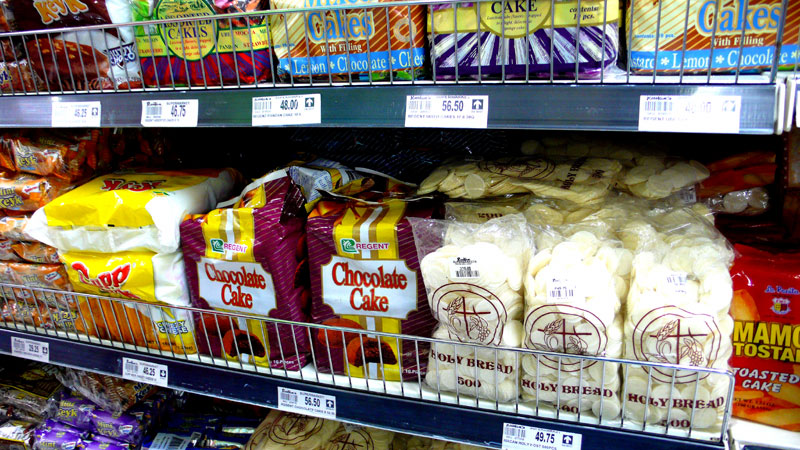 Here is an absolutely fascinating, and for me very saddening, article on the economics of the production of altar bread. At stake is the struggle taking place between a Rhode Island company that produces 80% of the communion wafers consumed in the U.S., and a dwindling number of religious communities that still attempt to compete with them. An excerpt:
Here is an absolutely fascinating, and for me very saddening, article on the economics of the production of altar bread. At stake is the struggle taking place between a Rhode Island company that produces 80% of the communion wafers consumed in the U.S., and a dwindling number of religious communities that still attempt to compete with them. An excerpt:
The difference is evident on the factory floor. The production plant at the Clyde, Missouri monastery, is adorned throughout with crucifixes and religious art, like a flour-dusted store-front church. Beneath Jesus on the cross, the nuns concentrated devotion recalls the Shaker cabinetmakers of the nineteenth century, sculpting the back of dresser drawers for His eyes only. The Cavanagh Co. does not have any religious ornaments in their production facility: in a factory constantly clouded with pulverized wheat, it would be inappropriate, Dan Cavanagh reasoned, to put a cross up and have it essentially defaced with flour dust. Cavanagh Co. retains a Christian sensibility, but what capitalist does not think his customers beliefs are sacred? The majority [of our staff] is Catholic, but I am not sure if they go to church regularly, Dan went on. From a company standpoint, this is not important, as their job entails making sure that the product quality is top-notch. They simply do not identify with the product in the same way that women religious tend to. The Sisters in Clyde tell their customers theyre not just getting a product, theyre getting a prayer, and consider their prayers part of our promise to our patrons. They are enriched through prayer themselves.
Thesis: Buying altar breads from the Cavanagh Co. makes one complicit in what John Paul II called a "structure of sin". Corollary: So does buying socks from Wal-Mart. Anyway, you should read the whole thing.
Image credit: Flickr user Santos.

